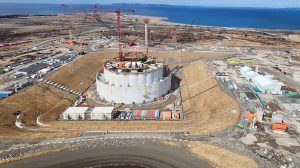When it comes to carrying out extra work subtrades are well advised to carefully check the wording of their contractual agreements or they could end up working for free.
Construction lawyer Robert Kennaley says it’s one of the most commonly misunderstood factors in the relationship between general contractors and subtrades.
Being asked to add to the scope of the work agreed to isn’t uncommon but sub-trades need to check the terms of their contract before doing anything, he says.
He says the case that comes top of mind in Ontario is Jessco Structural Limited v. Gottardo Construction Limited, 2016 ONSC 2189 involving a concrete forming sub working on two projects for the general contractor, Gottardo.
The contracts between Jessco and Gottardo were valued at $1.4 million and $140,000 each.
Over the course of the project, the site superintendant directed work outside the scope of agreement be performed. Jessco duly did the work but when they invoiced, Gottardo balked.
The matter ended up in court with Jessco claiming $228,916 was unpaid from the two contracts plus $32, 330 for the extra work. Gottardo counterclaimed for $662,000 alleging deficiencies.
In June 2015 a judge ruled that because the contract between the two parties explicitly required any change order or extra work to be in writing, the work Jessco did at the direction of the site superintendant did not have to be paid for.
“It seems the site superintendent asked for all this work but didn’t tell head office so that when they got the invoice they were shocked and surprised,” says Kennaley. “They refused to pay it.”
Jessco appealed that decision to the Superior Court of Justice where a panel split 2-1 in upholding the lower court decision in 2016.
You have to read it closely because these clauses aren’t uncommon but they’re not in the standing form contracts
— Robert Kennaley
Construction lawyer
The court found that poor soil condition in 2008 at the two job sites led to the site super asking Jessco to provide additional labour to another subtrade on site to speed up form work.
The site super also asked Jessco’s workers to help his own crew keeping the site clear of snow and ice.
Work orders were duly drawn up, detailing the extra duties and the site super signed off, court heard, but the problem began when those orders were submitted for payment.
“The contract clearly said that any extra work was to be in writing and approved by head office,” Kennaley says.
“It wasn’t and while it might seem that they were following the site super’s direction, the premise in law is that there was nothing to indicate either party had abandoned their rights as stated in the original contract.
“In the absence of that waiver the original contract stood.”
Citing an earlier decision Technicore Underground Inc. v. Toronto (City), 2012 ONCA 597 (CanLII) the court ruled the original decision should stand noting “the decision is consistent with the law of waiver. There must be “an unequivocal and conscious decision to abandon the right to rely on [the contract].”
One of the three judges on the appeal panel disagreed, however, noting there was a “pattern of behaviour” by Gottardo on the two sites which had the effect of varying the terms of the contract.
As such, Madam Justice Janet Wilson wrote, “in law Gottardo by its conduct waived the terms of the contract.”
The prevailing judges, however, cited Howard Wise’s The Manual of Construction Law, loose-leaf (Toronto: Carswell, 1994).
“Because contractors and builders have always been prone to make claims for extras, the Courts have laid down certain requirements to be met before such claims may be allowed,” the manual advises.
“The ordinary law of contract does not find any place for extras, and unless the contract itself provides for it, a claim for any additional work must depend upon a new contract, either express or implied. An express contract may be either in writing or oral, but an experienced contractor will always endeavour to have the order in writing because the onus is upon him to prove it by a preponderance of evidence.”
“There is a lesson to be learned,” says Kennaley noting the first question a lawyer will ask when approached for advice in these issues, is “what does the contract say?”
The best way to avoid trouble is to simply follow the contract, he says. If asked to perform extra work, consult the contract and if it stipulates any additional work must be approved in writing in advance, then to follow that requirement.
“There has to be evidence that the parties are waving their rights under the contract or they just have to continue to follow the contract,” he says.
“You have to read it closely because these clauses aren’t uncommon but they’re not in the standing form contracts. You really have to dot your “I’s” and cross your “T’s.”









Recent Comments
comments for this post are closed